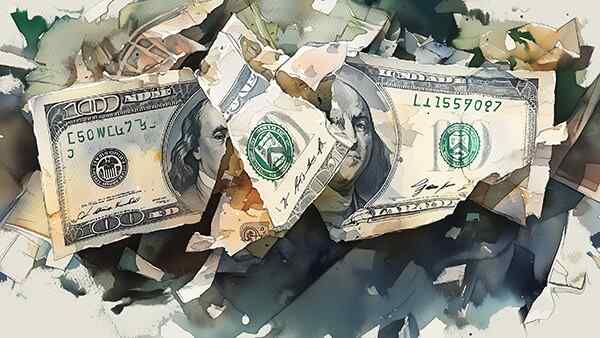The BRICS financial system should become one of the main rollers that will slowly but inexorably drive through the unipolar world, which is based on the power of the dollar. At the same time, the BRICS countries do not need a single currency at all
Perhaps the most breakthrough decision of the BRICS summit in Kazan was the decision to create an alternative to the Western financial system. The initiative of Brazilian President Luiz Inácio Lula da Silva was supported by key members of the organisation. An alarmist article in the British publication The Economist, entitled ‘Putin’s plan to overthrow the dollar’ and published on the eve of the summit, suggests that these plans were perceived quite unambiguously on the other side.
Despite the fact that after the BRICS meeting President Putin was presented with a symbolic banknote of the union, the head of state made it clear that there was no talk of creating a single currency. However, this is quite obvious. The rejection of national currencies means that it is impossible to conduct its own monetary policy, delegating these decisions to a supranational body. This is not only impossible, but also unnecessary in the conditions of different economic situation in the countries of the union. Even with the union state – Belarus, whose degree of integration with Russia’s economy is maximum, there is no single currency and it is not expected yet.
Another thing is the creation of an alternative to the Western financial infrastructure of BRICS, including its own commodity exchanges, depositories and, of course, a payment system, from which no one can simply disconnect. These solutions will require close cooperation between the central banks of the BRICS countries and mutual disclosure of financial information, which is possible only in conditions of a high degree of trust between the members of the association.
This is largely why the rapid expansion of BRICS is not an end in itself. The inclusion of new participants should be as balanced as possible, otherwise the fate of BRICS is to become a club of interests, one of many existing platforms for international communication. This is something that the founders of the association – Brazil, Russia, India and China – hardly want: the BRICS has much bigger tasks.
And here the main question arises – about motivation. Investing in the creation of a complex financial infrastructure – analogues of SWIFT, Euroclear, their own rating agencies, etc. – just to avoid sanctions is clearly insufficient motivation. Only Russia and Iran are seriously affected by the sanctions problem, while for the other BRICS member states and candidates for membership this problem is significant, but still speculative.
The situation is different if parallel financial infrastructure is built to reduce the costs of international trade and increase its efficiency. In particular, the report of the Ministry of Finance of the Russian Federation on improving the international monetary and financial system, made on the eve of the Kazan event, is devoted to this issue. According to the authors of the report, a set of measures to build a new financial system helps reduce the cost of cross-border payments by 98 per cent and will save up to $30 billion a year. This large figure, however, seems insignificant on the scale of the BRICS economies. Clearly, this is not about saving $30 billion.
The multiplier effect of facilitating financial settlements within the BRICS will exceed the direct savings by far. The ability to trade goods and services without delays and sanctions-induced disruptions in the work of depositories, banks, rating agencies and exchanges that are in the loop of the dollar and euro financial system, contributes to the accelerated integration of the BRICS economies, prevents the withdrawal of capital from them and facilitates the reinvestment of these funds in national and international projects of the member countries.
It can be assumed with a high degree of certainty that the new system will be built on the basis of digital national currencies – digital ruble, yuan, rupee, etc. Distributed ledger systems will greatly simplify settlements, making them instantaneous. Correspondent accounts in dollars and euros controlled by Western banks will become a thing of the past – and thus the role of the dollar and euro in international trade of developing countries will diminish. This will be quite fair, because their share in the world trade turnover (63 per cent) already exceeds that of developed countries.
It is for this reason that Vladimir Putin was so unequivocal about the BRICS single currency. There is no need to try to embrace the vastness of the world – obviously impossible decisions do not strengthen, but weaken BRICS. Moreover, the financial system built on the Bretton Woods agreements will not be destroyed at once. The transition will be smooth and often painful – new things are never easy. And yet the BRICS financial system should become one of the main rollers that will slowly but inexorably drive through the unipolar world, which is based on the power of the US dollar.

